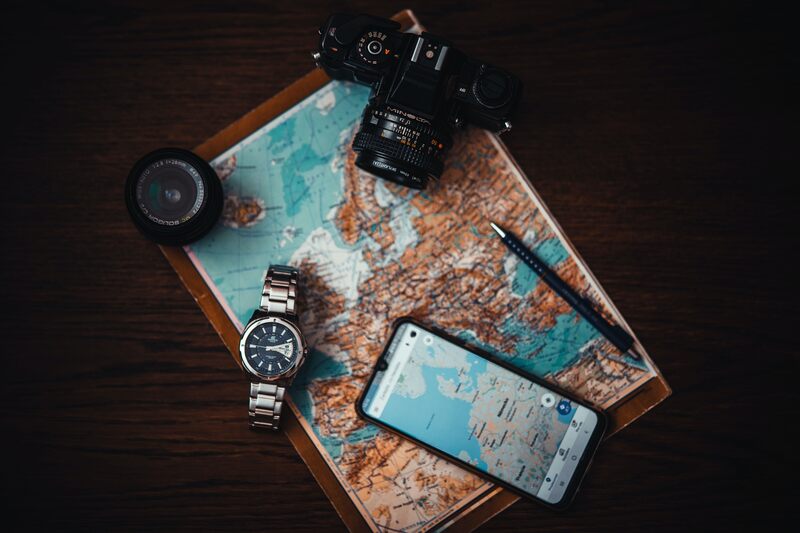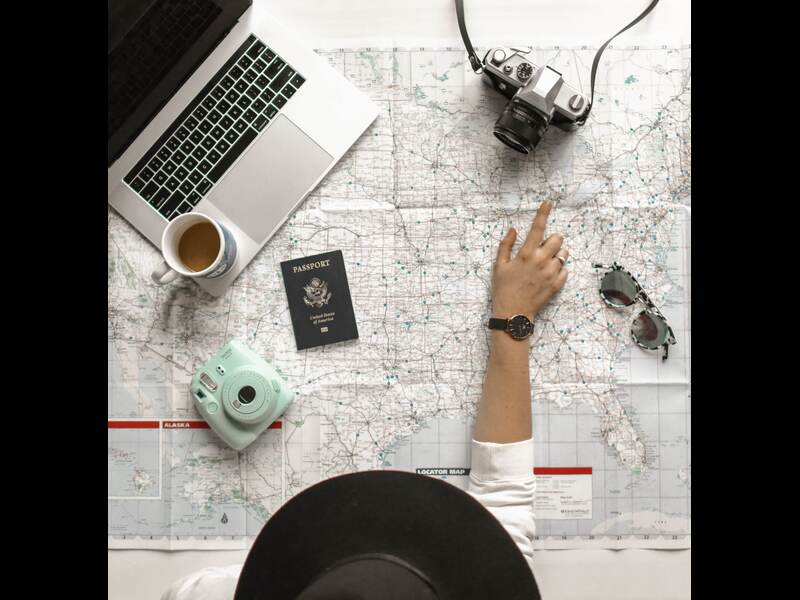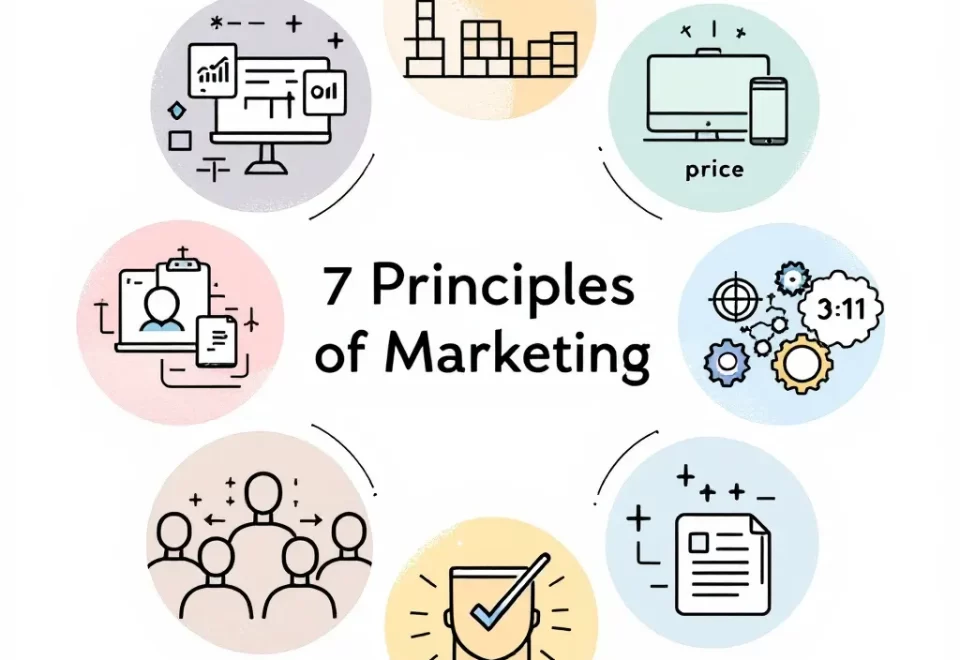The travel industry encounters diverse marketing challenges, including digital transformation, fierce competition, and the influence of consumer reviews on reputation management. Global events and crises also affect tourism. On the other hand, travelers expect personalized experiences, and the growing emphasis on environmental and social responsibility adds further pressure on travel agencies and destinations.
That’s when travel marketing comes into play. In response to these challenges, travel businesses must establish a robust online presence, differentiate themselves in a competitive market, and promptly address negative reviews to manage their online reputation effectively.
Emerging technologies are reshaping the traveler’s experience and influencing strategies businesses use in the travel sector. Learn the future of travel marketing below.
1. Personalization Through Big Data
A pivotal trend influencing the future of travel marketing involves using big data for personalized experiences. Given the wealth of information, travel businesses can analyze customer preferences, behaviors, and demographics to customize their marketing strategies.
Personalization will also become critical for travel software programs, like online booking systems. Machine learning algorithms can predict travel patterns, enabling companies to offer personalized recommendations and targeted promotions. Personalization enhances customer satisfaction and fosters customer loyalty, a crucial aspect in the competitive travel industry.
Dynamic Itinerary Recommendations
Utilizing big data, a travel agency employs machine learning algorithms to analyze the historical travel preferences of its customers. By understanding individual preferences, such as preferred destinations, travel activities, and accommodation styles, the agency creates dynamic and personalized travel itineraries for each customer.
These itineraries consider past travel patterns, ensuring that recommendations align with the customer’s preferences. This customized approach enhances the travel experience, increasing customer satisfaction and loyalty.
Targeted Promotions and Exclusive Offers
A hotel chain harnesses the power of big data to personalize its marketing promotions. By analyzing customer data, including booking history, preferred amenities, and seasonal preferences, the hotel identifies specific customer segments. The hotel then tailors targeted promotions and exclusive offers based on these segments.
For instance, customers who frequently book spa services may receive advertisements for discounted spa packages. In contrast, customers who often travel during specific seasons may receive exclusive offers for those periods. This personalized marketing strategy increases the likelihood of conversion and establishes a deeper connection with customers, fostering loyalty over time.
2. Artificial Intelligence and Chatbots
Artificial intelligence (AI) transforms travel marketing with AI-powered chatbots deployed by travel agencies and websites for immediate customer assistance. These virtual assistants can handle queries, recommend destinations, and even assist in booking flights and accommodations.
AI systems have various capabilities, such as workflow automation, integration, data analytics, and advanced reporting. For guest profile management, online booking, group reservations, and other hospitality, travel software programs employ AI. For instance, travel-specific customer relationship management (CRM) software can be used for marketing, generating leads, and sales tracking.
With the ongoing evolution of AI, these chatbots will enhance their sophistication, providing a seamless and efficient booking experience. Moreover, AI algorithms can analyze customer interactions, enabling businesses to refine real-time marketing strategies.
Instant Travel Assistance Chatbot
A travel agency integrates an AI-powered chatbot on its website to provide instant customer assistance. This virtual assistant handles inquiries, recommends destinations, and aids in booking flights and accommodations. As AI evolves, this chatbot continuously enhances its sophistication, ensuring users a seamless and efficient booking experience.
Real-time Marketing Optimization
A travel platform utilizes AI algorithms to analyze customer interactions with its services. By understanding user behavior, preferences, and feedback in real-time, the platform refines its marketing strategies on the fly. This dynamic approach ensures that promotional efforts are continuously optimized based on the latest customer interactions, enhancing the overall effectiveness of marketing campaigns.
3. Immersive Technologies – Virtual and Augmented Reality
Virtual and augmented reality (VR and AR) revolutionizes how travelers explore and plan their trips. VR allows potential travelers to virtually experience destinations, accommodations, and activities before booking.
AR enhances the in-travel experience by overlaying digital information in the real world, offering historical facts about landmarks, or translating signs in real-time. Marketers can capitalize on integrating VR and AR into their strategies to create engaging, immersive content that captures their target audience.
Virtual Destination Preview
A travel agency employs VR technology, enabling potential travelers to explore destinations, accommodations, and activities before making reservations. This immersive experience enhances the decision-making process for customers.
Augmented Reality Travel Guides
A travel app integrates AR to enhance the in-travel experience. The app provides historical facts about landmarks by overlaying digital information onto the real world. It translates signs in real time, offering users a richer and more informative exploration of their surroundings.
Do you need help navigating the world of travel marketing?
Contact Growth Hackers
4. Social Media Influence
Social media remains a powerful force in shaping travel trends. Platforms are utilized for sharing travel experiences and have evolved into influential marketing channels.
Travel businesses leverage user-generated content, influencer collaborations, and targeted advertising to reach a broader audience. The visual nature of social media aligns well with the travel industry, allowing marketers to showcase stunning destinations and experiences and enticing potential travelers to embark on their adventures.
User-Generated Content Campaign
A travel agency initiates a user-generated content campaign on Instagram, encouraging customers to share their travel experiences using a dedicated hashtag. The agency then curates and showcases this content on its social media channels, leveraging authentic narratives to inspire and attract a wider audience.
Influencer Collaboration Series
A hotel chain collaborates with travel influencers on Facebook to create a series of engaging content. Influencers share their experiences staying at different properties, showcasing the unique offerings of each location. This strategic collaboration reaches the influencers’ followers and taps into new audiences, boosting the hotel chain’s visibility and desirability.
5. Blockchain for Secure and Transparent Transactions
Blockchain technology is gaining traction in the travel industry, particularly for ensuring secure and transparent transactions. Smart contracts, powered by blockchain streamline the booking process by eliminating intermediaries and reducing the risk of fraud.
Additionally, blockchain provides a decentralized and tamper-proof ledger for loyalty programs, allowing travelers to access rewards seamlessly across different providers. As data security and transparency become increasingly important to consumers, integrating blockchain into travel marketing strategies can build trust and credibility.
Fraud-Resistant Booking System
A travel platform adopts blockchain technology to implement a fraud-resistant booking system. Intelligent contracts streamline transactions, eliminating intermediaries and reducing the risk of fraudulent activities. This enhances the overall security of the booking process, instilling confidence in users.
Decentralized Loyalty Rewards
A hotel consortium utilizes blockchain to establish a decentralized and tamper-proof ledger for loyalty programs. This allows travelers to seamlessly access and redeem rewards across various hotels within the consortium, creating a unified and transparent loyalty experience that builds customer trust.
6. Environmental Sustainability as a Marketing Strategy
As awareness of environmental issues increases, travelers are becoming more mindful of the ecological impact of their journeys. Travel businesses are responding by incorporating sustainability into their marketing strategies.
This includes promoting eco-friendly accommodations, highlighting responsible tourism practices, and offsetting carbon footprints. Companies prioritizing sustainability in marketing contribute to environmental conservation and appeal to a growing segment of environmentally-conscious travelers.
Eco-Friendly Accommodation Showcase
A travel agency incorporates environmental sustainability into its marketing strategy by curating and promoting a collection of eco-friendly accommodations. This initiative aligns with the agency’s commitment to responsible tourism and attracts environmentally-conscious travelers seeking sustainable lodging options.
Carbon Footprint Offset Program
A tour operator introduces a marketing program where a percentage of each traveler’s booking goes towards offsetting the carbon footprint of their journey. By transparently communicating this initiative, the operator appeals to environmentally-conscious travelers who prioritize companies actively working towards minimizing the ecological impact of travel.
Now is the time to maximize the latest travel marketing trends!
7. The Rise of Subscription-Based Travel Services
Subscription-based models are reshaping various industries, and travel is no exception. The concept of subscription-based travel services is gaining momentum, allowing travelers to pay a fixed fee for access to various travel-related services, from flights to accommodations and experiences.
This model provides convenience for travelers and ensures a steady revenue stream for businesses. Marketing in this context emphasizes the value and flexibility that such subscriptions offer, enticing customers with the promise of a hassle-free and cost-effective travel experience.
All-Inclusive Travel Membership
A travel agency introduces an all-inclusive travel membership where subscribers pay a fixed monthly fee for access to flights, accommodations, and curated experiences. The marketing strategy highlights the convenience and cost-effectiveness of this membership, enticing customers with the promise of a hassle-free and comprehensive travel experience.
Flexible Adventure Subscription
A travel startup launches a subscription service catering to adventure enthusiasts. Subscribers can access various adventure experiences, from hiking trips to extreme sports, for a fixed monthly fee. The marketing approach emphasizes the flexibility and diversity of experiences, appealing to adventure seekers who value spontaneity and a broad range of travel activities.
Final Words about The Future of Travel Marketing in a Tech-Driven World
As we reflect on the first year in this tech-driven landscape, the future of travel marketing appears dynamic and promising. Integrating big data, artificial intelligence, immersive technologies, social media influence, blockchain, environmental sustainability, and subscription-based models is shaping a new era for the travel industry. Successful travel marketers will embrace these innovations, staying agile in adapting to evolving consumer preferences and leveraging technology to create unforgettable, personalized experiences for the modern traveler.
Growth Hackers is an award-winning travel marketing agency helping businesses from all over the world grow. There is no fluff with Growth Hackers. We help entrepreneurs and business owners in travel industry revolutionize their marketing strategy in a tech-driven world, increase their productivity, generate qualified leads, optimize their conversion rate, gather and analyze data analytics, acquire and retain users and increase sales. We go further than brand awareness and exposure. We make sure that the strategies we implement move the needle so your business grow, strive and succeed. If you too want your business to reach new heights, contact Growth Hackers today so we can discuss about your brand and create a custom growth plan for you. You’re just one click away to skyrocket your business.






